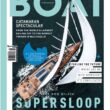The evidence of trade show resurgence is everywhere. The UK listed Informa has cheered investors with news that like-for-like events revenue is ahead of 2019, and acquisition multiples are back in double-digits.
It is just over five years since Informa became the B2B exhibitions world leader with its £3.8bn/ $5.2bn acquisition of UBM – less than two years before the pandemic struck. The UK listed information and events company scrambled (more quickly than most) to raise funds from shareholders and from some rich divestments, before refining its strategy last year with the $525mn acquisition of B2B wunderkind Industry Dive. But Informa’s UBM deal and the pandemic have also created new trade show growth from former UBM executives backed by private equity firms.
Witness the quick-fire, three-year strategy that has made the UK-based Arc Media Holdings into an emerging force among international exhibition organisers. Then, there’s Questex – a 18-year-old, US-based B2B media company which was acquired by new private equity owners five years ago under the management of CEO Paul Miller (ex UBM, Penton and Informa) with David Kieselstein (ex Penton) as chair. While we have all moved on from predicting a new world of dominant virtual events, these ‘new’ event companies (including the revamped Hyve Group and also the 15-year-old CloserStill Media are characterised by fluid strategies that mix conferences, summits and exhibitions with digital information.
They’re the 21st century version of the longtime B2B companies, especially in the UK, which launched exhibitions on the back of trade magazines and directories. They seek to become multi-channel specialists in their markets with a serious commitment to content, diverse revenue streams and year-round industry relationships. That’s why it seems increasingly appropriate to refer to “events” rather than just trade shows or exhibitions; versatility is a key asset.
That’s exactly how Questex sees it.
The company had been co-founded in 2005 by former Reed and Advanstar executive Kerry Gumas. In 2009, in the wake of the global banking crisis, it was bankrupt and taken over by its lenders. After almost a decade of financial rehab, it was acquired in 2018 by MidOcean Partners for an estimated $180mn.
At a time when UBM had ditched even complementary B2B information services and magazines to concentrate on events (before being snapped up by Informa) the new Questex owner committed to building integrated market groups of events and media. By the time of the 2020-21 pandemic, the deal might have looked like unfortunate timing. But five years of growth under CEO Miller, arguably, illustrates the company’s good fortune in being able to develop its multi-channel (and increasingly international) approach – in time to capitalise on the post-covid rebound.
Helped, of course by some pandemic insurance payouts, the numbers show almost uninterrupted growth with the company easily beating its pre-pandemic revenue in 2022 and now expecting 2024 to be more than 60% ahead of 2019:
| $mn Questex | 2024** | 2023 | 2022 | 2021* | 2020* | 2019 |
| Revenue | 120 | 103 | 88 | 66 | 59 | 74 |
| EBITDA | 40 | 28 | 22 | 17 | 16 | 15 |
| Margin | 33% | 27% | 25% | 26% | 27% | 20% |
| Headcount | 260 | 275 | 244 | 190 | 239 | |
Questex operates in four broad areas with Life Sciences/ Healthcare and Hospitality/ Travel together accounting for 70% of revenue and Wellness and Experiential Technology for the rest. Almost 30% of revenue is accounted for by: International Hospitality Investment Forum, in Berlin ($9mn), and the Bar & Restaurant Expo, Digital Pharma East, Live Design International, and the International Beauty Show/ IECSC in New York and Las Vegas (each generating some $5mn).
Significantly, the Questex revenue divides between: exhibition space and event sponsorship (47%), digital advertising/marketing (33%) and visitor/delegates (20%). It’s genuinely multi-channel.
In many ways the Questex distinctiveness stems from the digital revenue generated by its Fierce Markets (Industry Dive before Industry Dive) whose Life Sciences newsletters and events account for some $20mn. But its sheer level of innovation and new launches (more than a dozen new brands in the last two years) is fed by its strong centralisation of databases, audience management and systems (55% of headcount), with relatively small but focused brand teams.
The strength of its post-covid rebound is best illustrated by the 121% revenue growth of Fierce Healthcare Digital, Fierce Life Sciences Digital and Digital Pharma East, which together will this year generate $31mn of revenue (2019: $14mn). The company also launched The Hospitality Show this year with the American Hotel & Lodging Association which generated $3.7mn of revenue in just five months.
Questex revenue is now 80% from the US but with growing interests in Europe (17%) and Asia (3%).
In 2023 – when the company will have grown revenue by 56% in two years – we might assume that MidOcean (in year 5 of its ownership) is getting ready to capitalise on the strong growth – either by acquisition or divestment.
The potential partners are not too difficult to identify. CloserStill would be a great fit in life sciences and technology to produce a $400mn-revenue group with almost equal revenue shares in the US and Europe and plenty of scope for growth in Asia.
But there are others.
The estimated $130mn revenue, US-based Northstar Travel Group (publisher of Travel Weekly in the US, China and Asia and Meetings & Incentives, and Corporate Travel, and owned since 2016 by EagleTree) would be a perfect fit for Questex, one-third of whose revenue is in travel and hospitality. The combination of Questex with Northstar and, perhaps, also the privately-owned, UK-based Jacobs Media Group (£14mn-revenue publisher of UK Travel Weekly, The Caterer and Connecting Travel) could create a truly global grouping of travel and hospitality media, neatly diversified across events, information and advisory services.
Whichever combination of trade show companies seems most likely, the possible deals in 2024 might yet include Informa, RX, Clarion, EasyFairs and Emerald. Of course. But Questex (valued at $400mn+) seems likely to be centre-stage. Who would have guessed that a five-year transformation which included 24 months of covid could have produced a “new” global player?




